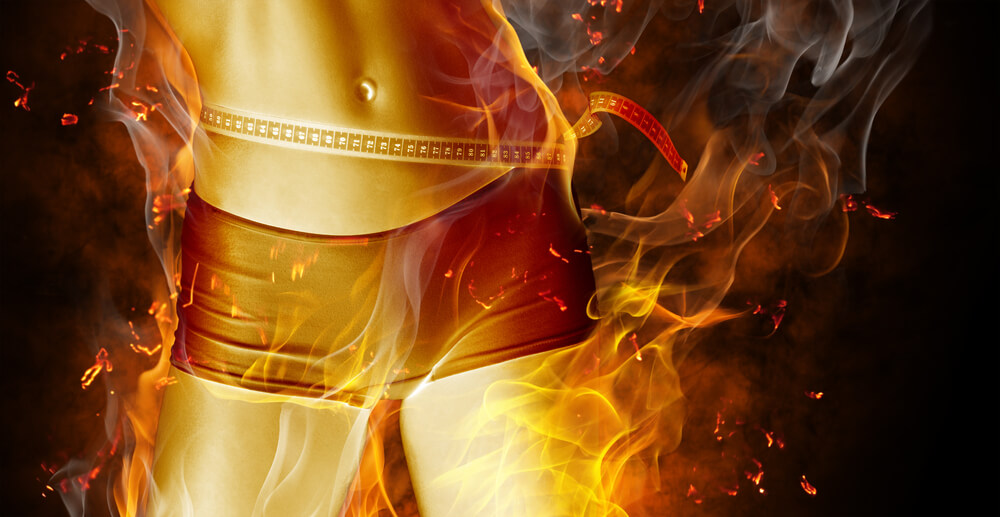
Sometimes just doing the basics isn’t enough—especially with fat loss. Here are the top diet tips we know that can get you lean in no time!
Following a diet regime should be enough to guarantee weight loss, right?
Wrong!
Dieting takes more effort than following one program. Here are 25 diet tips to aid your weight loss journey that you’ll need to try to believe!
 #1 Drink Plenty of Water
#1 Drink Plenty of Water
Water has zero calories and zero sugars. So basically, water is your new BFF! Since it doesn’t add to your counts, you can drink as much as you want. And, water is an essential nutrient to keep you hydrated.
Rules on how to lose water weight actually show why you should drink water.
Flushing toxins through your body works best with fluids like water. Hydration is also a crucial component to digestion and weight loss depends on good digestion. Water also helps you burn more calories! Studies have shown that drinking water actually aids in weight loss – so keep that water bottle handy!
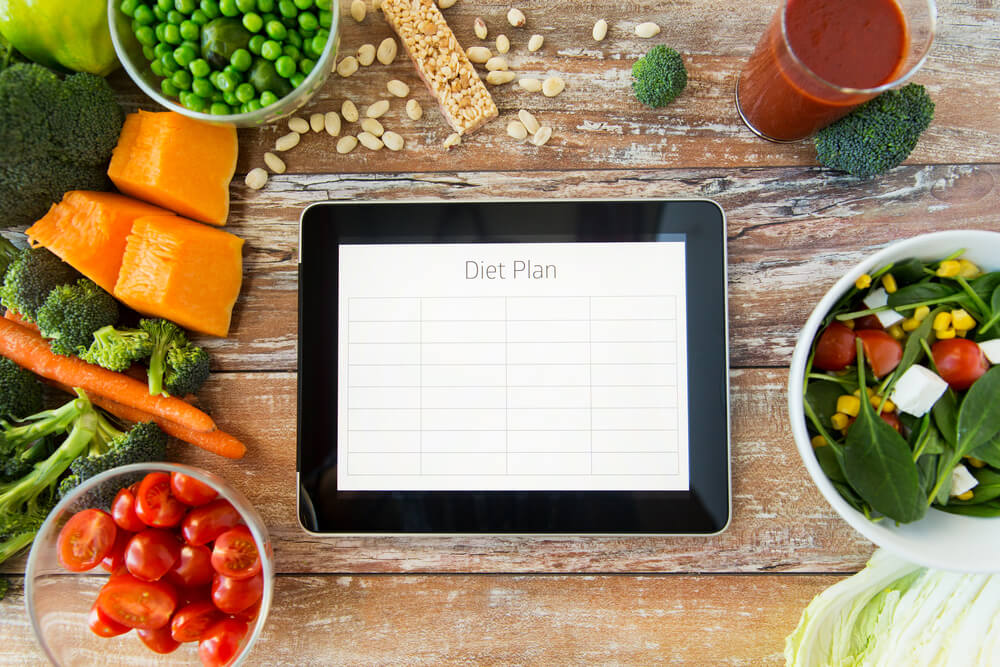 #2 Plan Ahead
#2 Plan Ahead
Typically, eating fast food happens when you haven’t planned a meal. It’s a spur of the moment decision and marketers of fast food know that very well. Rather than letting this even be an option, plan ahead! Don’t just plan what you want to eat for the rest of the week, but actually have it ready at least a couple of days in advance.
Your best bet is to plan the whole week, especially Monday through Friday and have it already made. Make a date with your kitchen every Sunday to make your meals for the week.
Store your meals in ready to eat portions so you know you’ve got all your bases covered. And, this’ll save you a lot of time throughout the week! Preparing your meals early gives you the opportunity to ensure you’ve got your calories, carbs, proteins and fats all counted right.
Dinner meals are the easiest to prepare early and store, but other meals may just need planning and any easy prep. Making a plan for yourself can really make a difference and keep you from falling into traps and temptations.
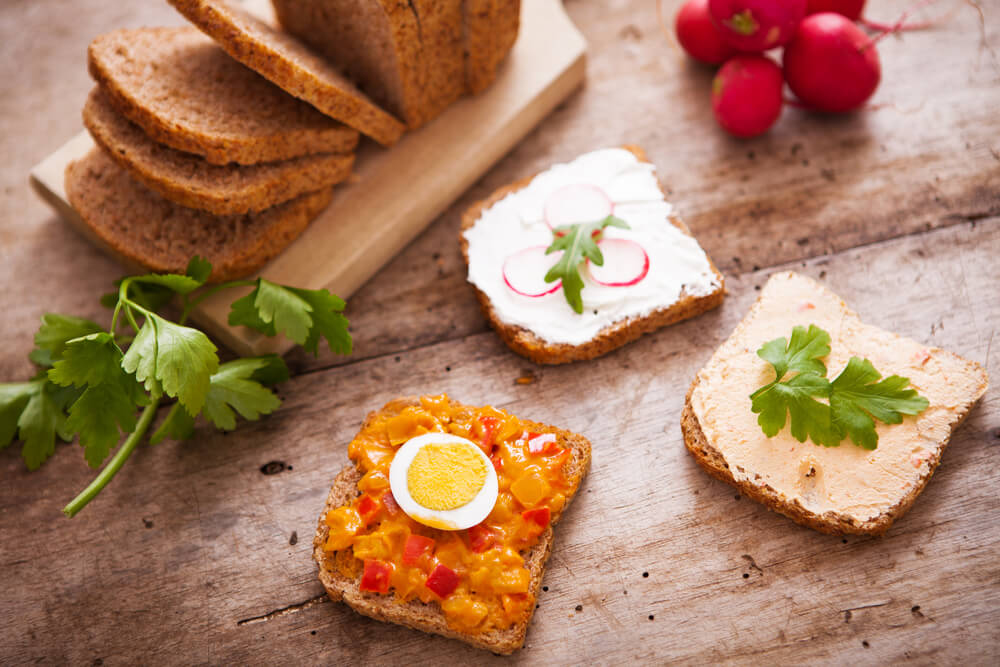
#3 Keep Snacking
Three meals a day is a decent guide for the big ones – breakfast, lunch and dinner. But, don’t forget about snack meals. Snacking is crucial to curbing your hunger. Make sure you have a snack every three to four hours. You will keep your appetite managed so that when it is time for a regular meal, you aren’t starving.
Being exceptionally hungry will cause you to eat more than if you’d just had a quick snack. Make sure your snacks are healthy though! Chowing down on junk foods between healthy meals will definitely harm your weight loss journey. Aim for low-calorie snacks – anything with fruits and vegetables will always be a good bet!
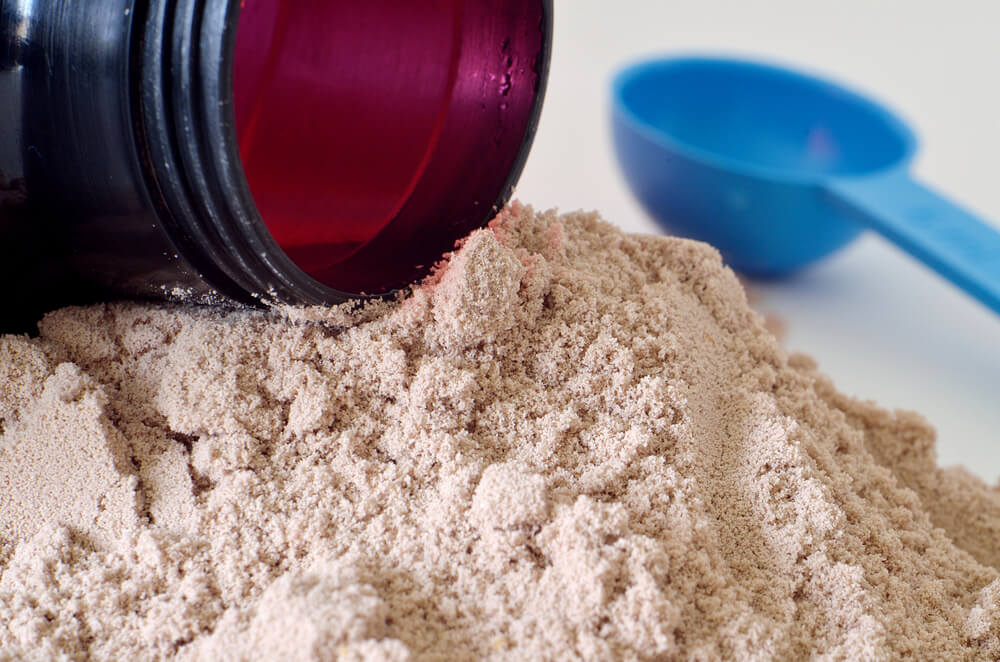
#4 Include a Protein for Every Meal
Protein is essential in maintaining and building muscle. Without protein intake, your body will start using fats to replace muscle. Suddenly, you’ll be building fat stores instead of muscle stores!
Avoid this slippery slope and ensure you’ve included protein in all your big meals. Also remember that protein doesn’t necessarily mean meat. There are many forms of protein and classic favorites that aren’t meat such as beans and nuts.

#5 Stock Up On Healthy and Convenient
Start by cleaning out the pantry and fridge of junk foods. Don’t let the temptation even be an option! Then replace those with healthy options. When you’re hungry, you’ll eat. And when your only option is healthy, you’ll eat it! It’s simple psychology of convenience on this one.
Of course, it is crucial that you pick healthy foods you actually like. Don’t stock up on kale just because you read it’s a superfood. Fill your pantry with snacks you will eat, but that won’t hurt your weight loss goals.
And, make sure the things you’ve got are convenient for you. If you’re the type of person that won’t eat an apple because you don’t want to take the time to cut it up – buy sliced apples! You’re better off spending a little extra than letting all your fruit go rotten and uneaten.
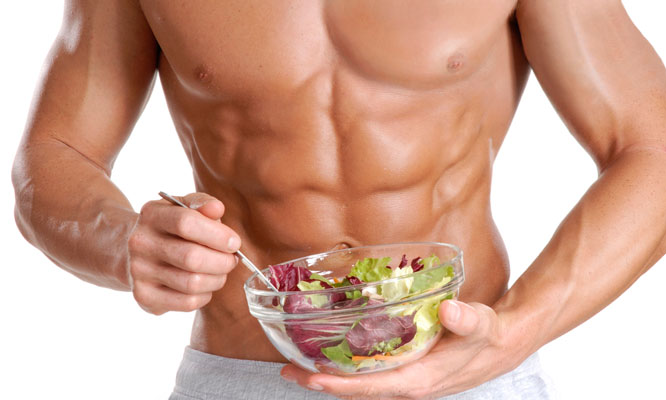
#6 Portion Control
Portion control is a crucial element to all diets. Read up on portion sizes and understand what amounts you should really be eating. After a couple of weeks of using measuring cups to really determine the right amounts, you’d be amazed at how quickly your body gets used to it.
When people downsize their portions, at first they feel like they’re hardly eating. But after a couple of weeks, they can’t imagine how they used to eat such bigger portion sizes at all. Your body will adjust to how you eat. Just as it’s adjusted to eat the large portions you may already be eating, it’ll adjust to smaller ones too.
It’s going to help you so much in the long run to eat the right amounts, so this one is non-negotiable! Also a helpful tip: When you go out to eat, order children’s portions!

#7 Slow and Steady Wins the Race
It’s important for you to always remember that weight loss takes time. Don’t get caught up in immediate results and focus on the long term. Day-to-day weighing can be discouraging, so you’re better off weighing yourself once a week instead.
Look for little steps of weight loss every couple of weeks and celebrate every little victory as a success. You may be the tortoise, but you’ll have the ultimate prize at the finish line.
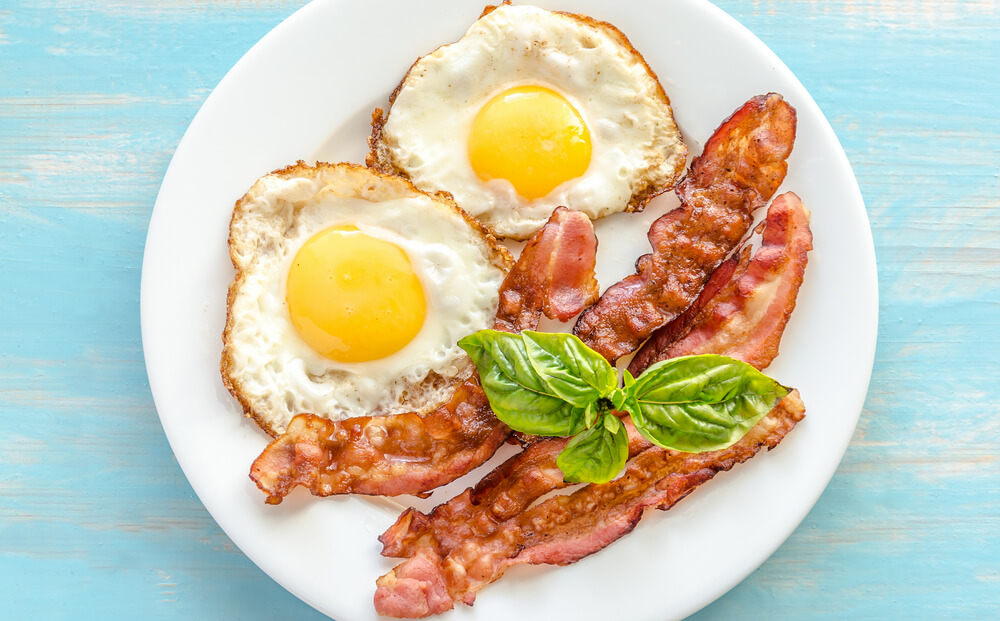
#8 Always Eat Breakfast
Cutting out a meal may seem like an easy way to cut calories, but your body responds negatively to this approach. Just like with snacking, you don’t want to deprive your body of anything it needs.
Breakfast is often considered the most important meal of the day for a reason. Don’t skip out on it because it offers your body energy and brain food for the entire day. Energy and brain food help you to make the right choices for your weight loss journey and to give you better gym workouts(because you should also include fitness in any diet).
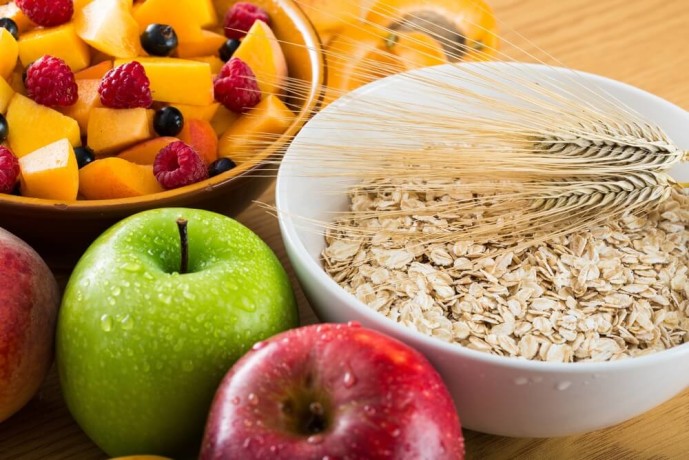
#9 Count the Fiber
Fiber is the most important element of digestion. Your body needs fiber. Unfortunately, most people only get about half the daily fiber they need! As mentioned, digestion is very important to weight loss and fiber makes it happen. When you’re counting calories, you should definitely be counting fiber.
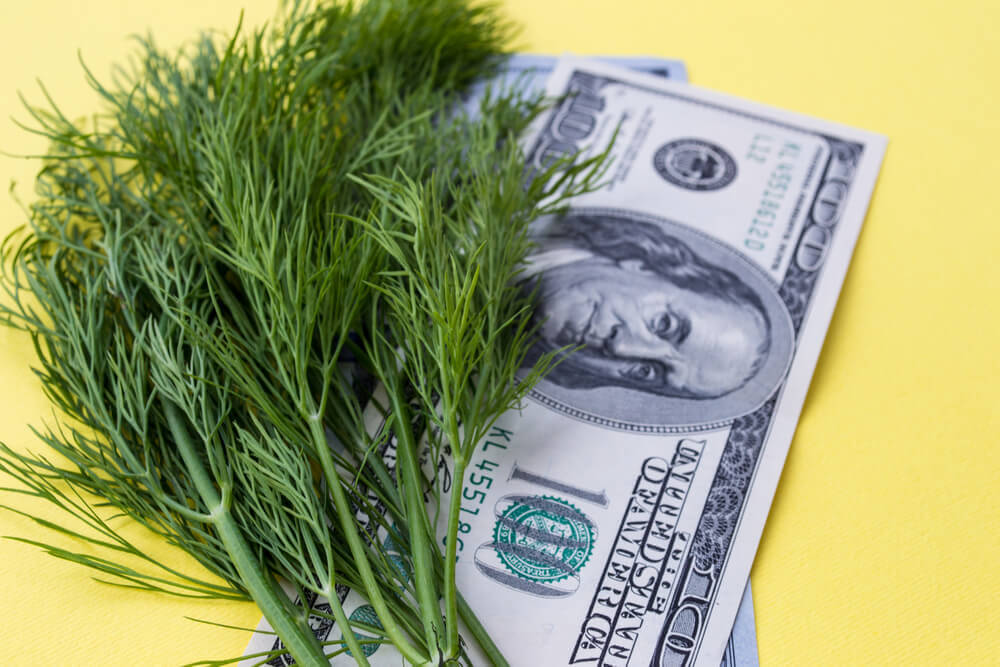
#10 Never Shop Hungry
Do not shop hungry! It is way too easy to fall into temptation when you shop on an empty stomach. Obviously, this is most crucial when you’re grocery shopping – you’ll be extra tempted to buy more than you need and probably things you don’t need at all.
But, this is also relevant to all forms of shopping. When you’re out shopping for clothes and you get hungry, what do you do? You certainly don’t go home and whip up a spinach salad with freshly cut fruits. You hop over to the nearest fast food place or a restaurant. Make sure you eat before you shop!

#11 Get Your Beauty Rest
Sleep deprivation is very damaging to your weight loss journey. Your body is more likely to contract illness, have less energy and absorb nutrients less effectively. These are all harmful to your weight loss goals. It may seem like an afterthought with all the things you need to get done, but getting at least six solid hours of rest every night is essential.
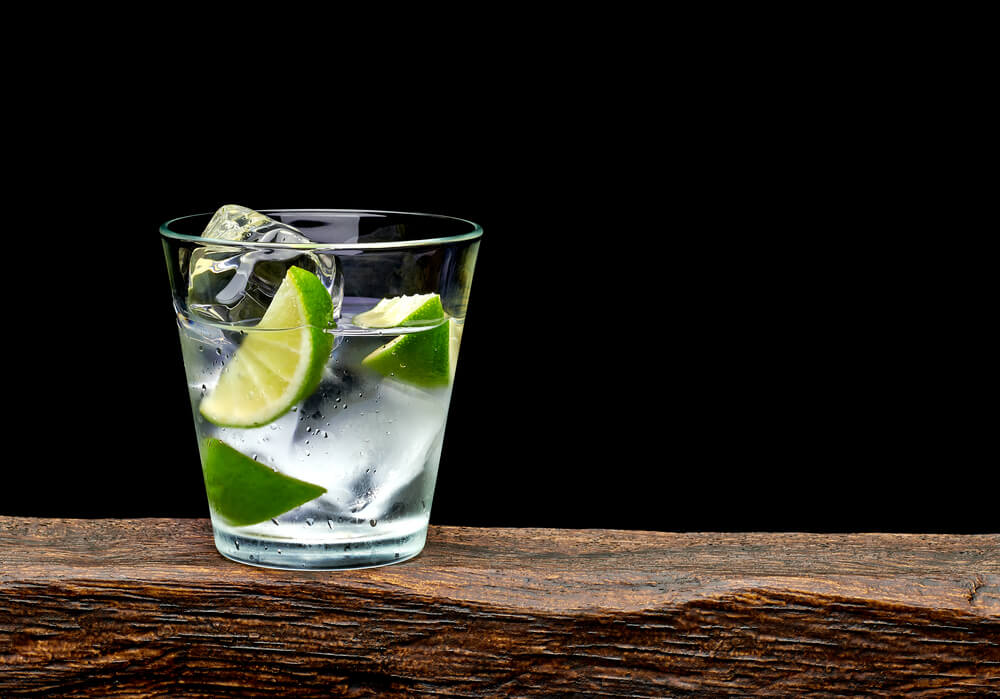
#12 Limit Alcohol to Weekends and Special Occasions
Alcohol is loaded with empty calories. There’s a reason they call it a “beer belly.” While drinking with meals is an extravagant and fun thing to do, alcohol adds calories to your counts with zero nutritional value. Save it for the weekends and special occasions to keep your calorie count in check!

#13 Keep A Food Diary
It’s time to do the math because counting really matters. Do the research on how many calories you should intake daily and how much fiber, protein, fats (and which type of fats), carbs and sugars. If that seems like an overwhelming amount of categories, limit your focus to calories. That’s the most important place to start.
If you want to share your journey or find somewhere to dump all your hard work, maybe start a blog. It could keep you motivated to stay on it.

#14 Create A Rewards Program (But No Food-Related Rewards)
You’ve been hard at work and you should reward yourself. If you followed all of your diet and fitness routines for one month straight, it is definitely time for a reward. Just get absolutely nothing related to food. Many programs – at work, at school, in clubs – offer rewards programs and that’s because it a great incentive to keep doing your best. So set up something for yourself.
![]()
#15 Track Your Fitness
Weight loss is a two-part journey: Diet and fitness. Keeping track of your diet, portion sizes and foods is very important, but so is your workout. Find a fitness program that works with your schedule and commit to it side by side with your diet.
Aimlessly going to the gym every week and hopping on the treadmill doesn’t fit a rigorous enough routine. You need to track how much time you spent doing what and, if possible, how many calories you burned.
Cardio is crucial to weight loss, but strength training is important also. Don’t leave out either one! Strength training also doesn’t have to mean using machines – you can go for pilates or aquatic workouts if they’re more comfortable. Better yet, try free weights!

#16 Cut Out Late Night Snacks
Mark Hyman, MD, author of Ultra-Metabolism says, “Finish eating three hours before bedtime. Your metabolism slows down when you sleep so you shift from fat burning to fat storage.”
Late night snacks are a definite tank to your weight loss. Not only does your metabolism slow down when you sleep, but typically you aren’t active late at night when you’re at home on the couch. If three hours just doesn’t work for your schedule though (some people do have to work late), aim for at least one hour.
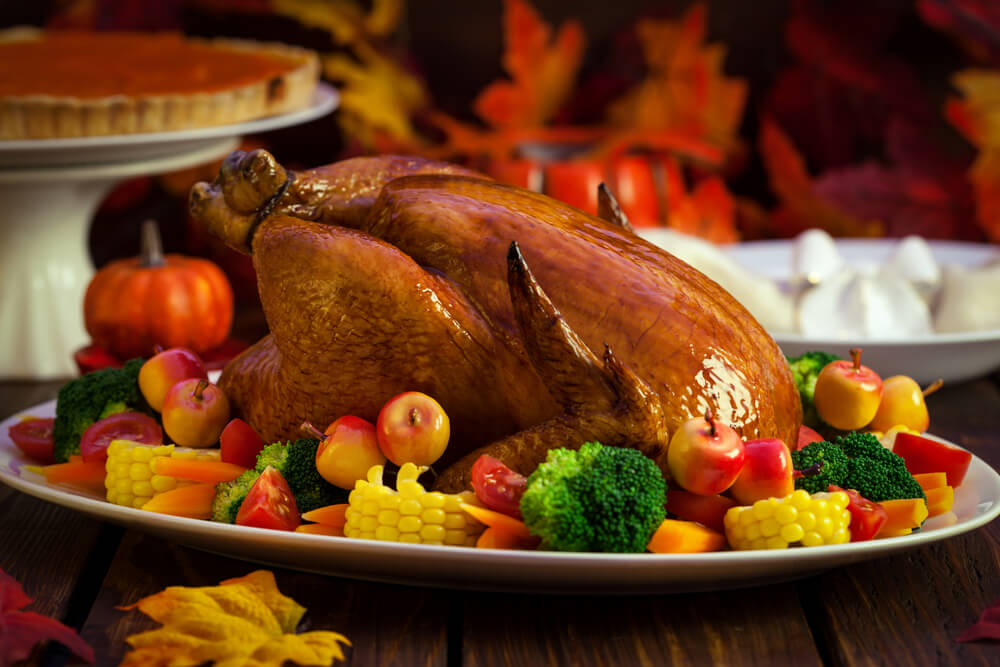
#17 Place the Food in the Kitchen
Rather than bringing the meal to the table and placing it at the table, plate everything away from where you’re eating. Keeping the serving dishes in the kitchen, helps prevent you from grabbing seconds. When something is sitting in front of you, you’re more likely to try it out. So even if you aren’t really hungry anymore, you’ll keep nibbling when the serving dish is sitting on the table. Keep it out of reach in the kitchen or on the counter.
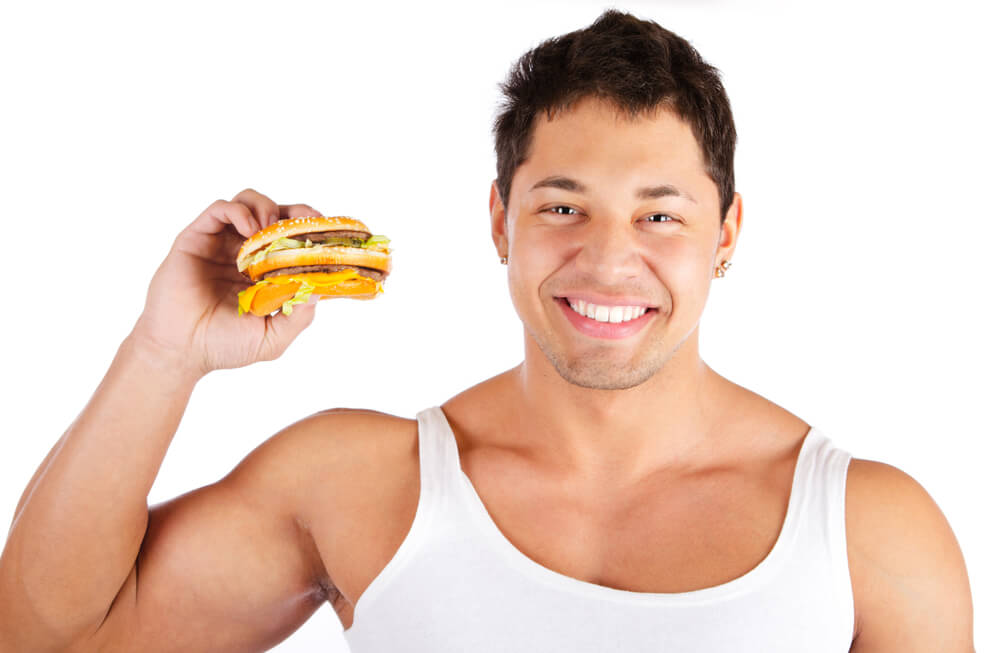
#18 Pace Yourself
Eating slower will let your body fill up faster. People who chow down in a quick minute tend to vacuum a hefty plate clean. But, those who eat slowly tend to get full and can’t eat nearly as much. Portion control will already help you with ensuring you eat the right amounts, but this will also help you from wanting to grab another portion.
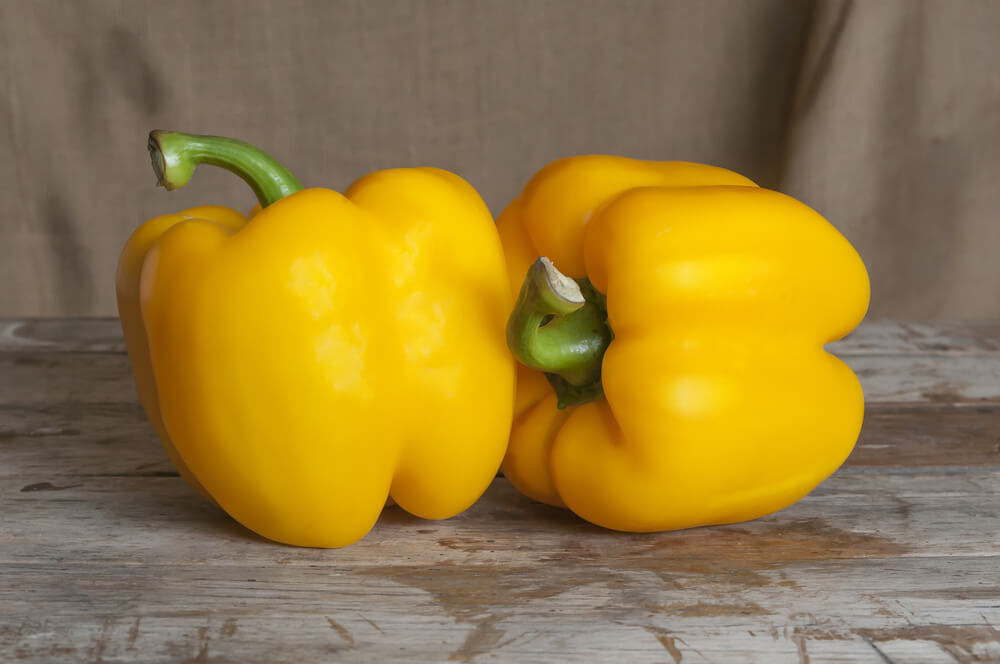
#19 Just Add Spice
Flavoring food somehow makes it seem fuller. Spices are a great way to add variety to your dishes and to make your body feel like it’s getting that something extra out of its meals. “Food that is loaded with flavor will stimulate your taste buds and be more satisfying, so you won’t eat as much,” says American Dietetic Association spokeswoman Malena Perdomo, RD.

#20 Eat Before a Party or Event
Parties and events typically have greasy and unhealthy food options. Your best bet is to eat before you go so you won’t be hungry or tempted to chomp on things that will hurt your weight loss journey. And even if it’s a dinner, eating some snacks beforehand will encourage you to have something small and light when you get there.
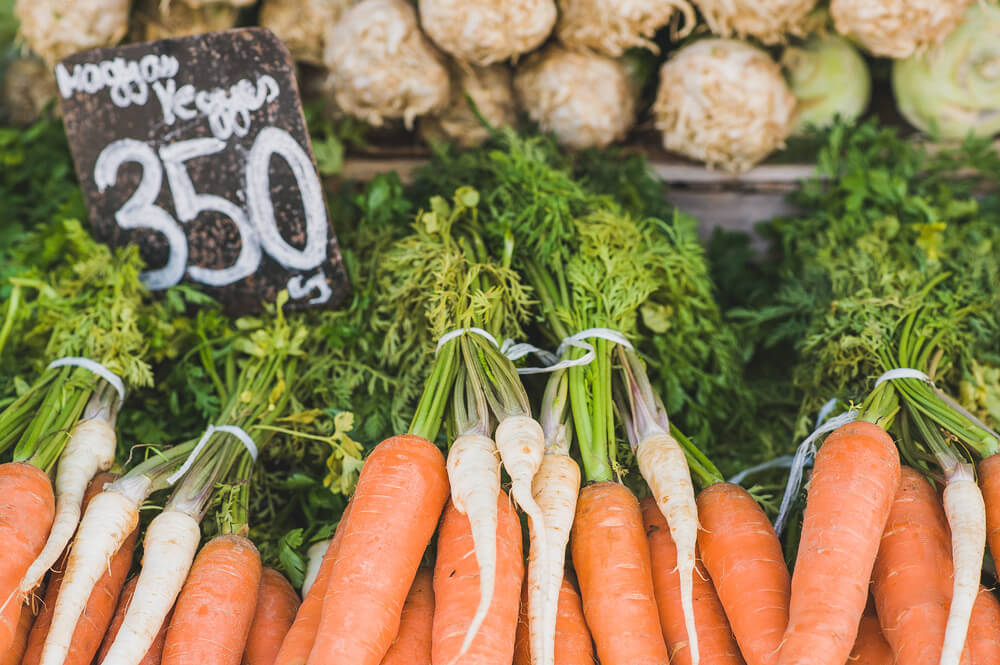
#21 Start With the Vegetables
Dawn Jackson Blatner, RD says, “Eat in the right order. Eat vegetables first to naturally have more of them and ultimately eat fewer calories.” This is a trick we should be teaching our kids. Start with the veggies to make sure you eat them!

#22 Only Use Healthy Talk
Positivity goes a long way in any journey, and especially in your weight loss journey. Swap “weak” for “strong,” “unhealthy” for “healthy” and “lose fat” for “get fit!” Your mind focuses on word choice and you want to focus on your goals in a positive way.
Keep up the healthy talk to keep your mind focused on the image you want. You may also find it useful to follow some fitness Instagrams or blogs to help you think and stay positive.
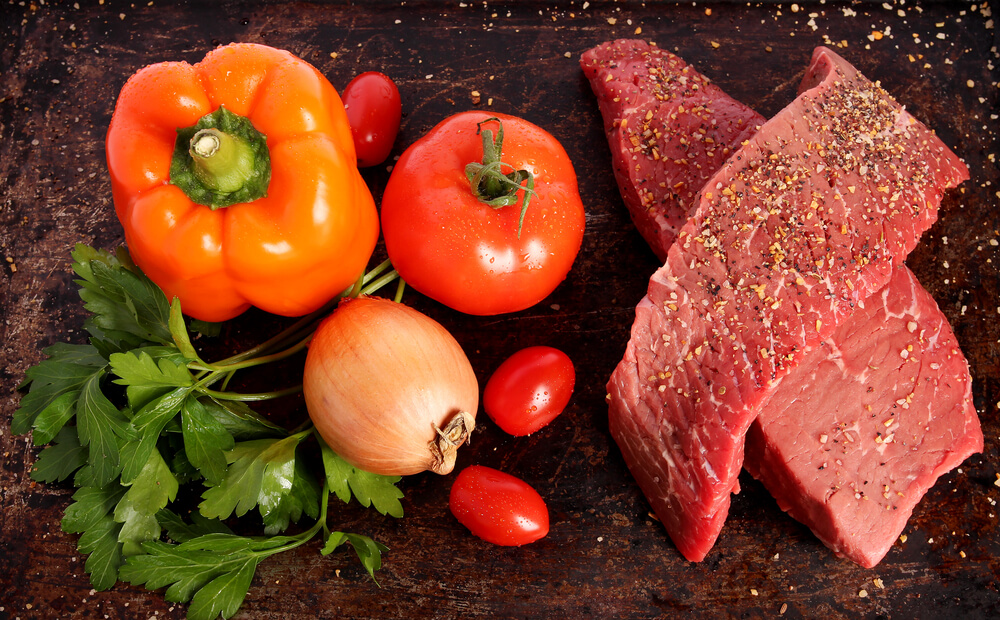
#23 Pack Your Lunch
Lunchtime is one of the easiest fast food traps! Go the safe route and pack your lunch. Then you’ll know exactly how many calories you’re eating and you won’t cause any low blows to your weight loss!

#24 Walk It Off
Walk for 15 minutes after every meal, especially dinner. When you’re sedentary right after eating, your metabolism isn’t pumped. So pump it up! Take a quick walk to burn off some of the calories you just consumed!

#25 Set An Event Goal
Goals are crucial for any journey. But, shedding pounds isn’t a goal you can be sure of in a time limit. Instead, set a goal for an event.
For example, I want to run a marathon by this date. That way, you’re prepping for that marathon and you’ve got a clear picture of what you want by a certain date. You may also want to set goals for result photos like I want to take a before and after photo every six months. That way you have historic and motivating proof for yourself.
Conclusion
There are many reasons for following a simple diet plan. There are a few key diet tips to keep in mind. First, you should always consume the key vitamins, mineral and nutrients your body needs. Second, whatever plan you follow shouldn’t be temporary. You want to adopt it as a lifestyle that you’ll maintain. Doing so will ensure you’re as healthy as possible and that you are able to make the most of your time in the gym.
By Alyssa Bright
Latest posts by Terry M (see all)
- Garage Gyms - Aug 1, 2018
- Kettlebells – Why They Should Be Added To Your Routine. - Jul 24, 2018
- Weight Belts: What Are They Really For? - May 31, 2018











Setting a goal for an event sounds like a grand idea. It’s easier to achieve something if you’re aiming for it. Something that I’ve heard helps people stick to their diet is to read a diet book. Supposedly you can get some great insight in detail.